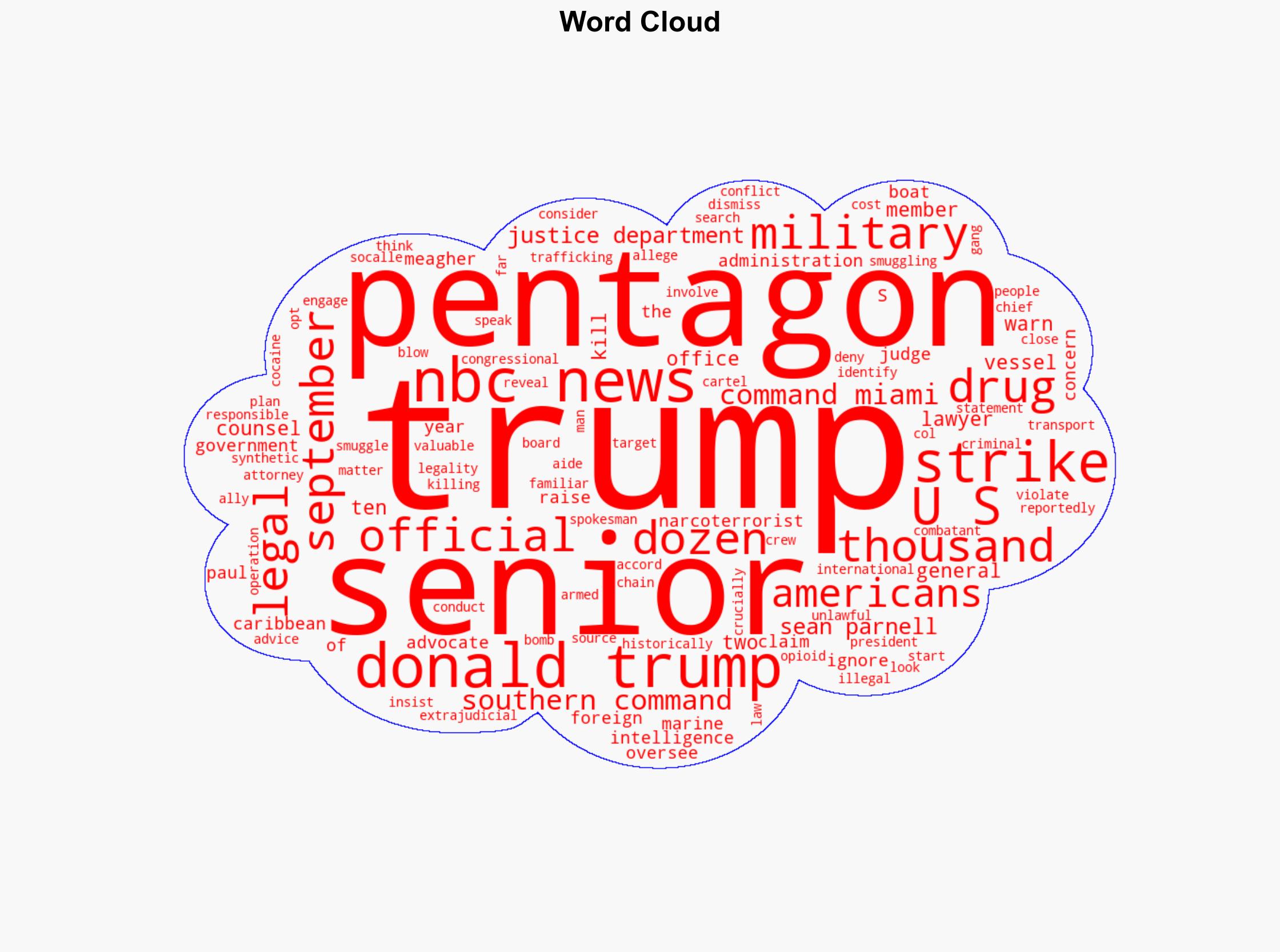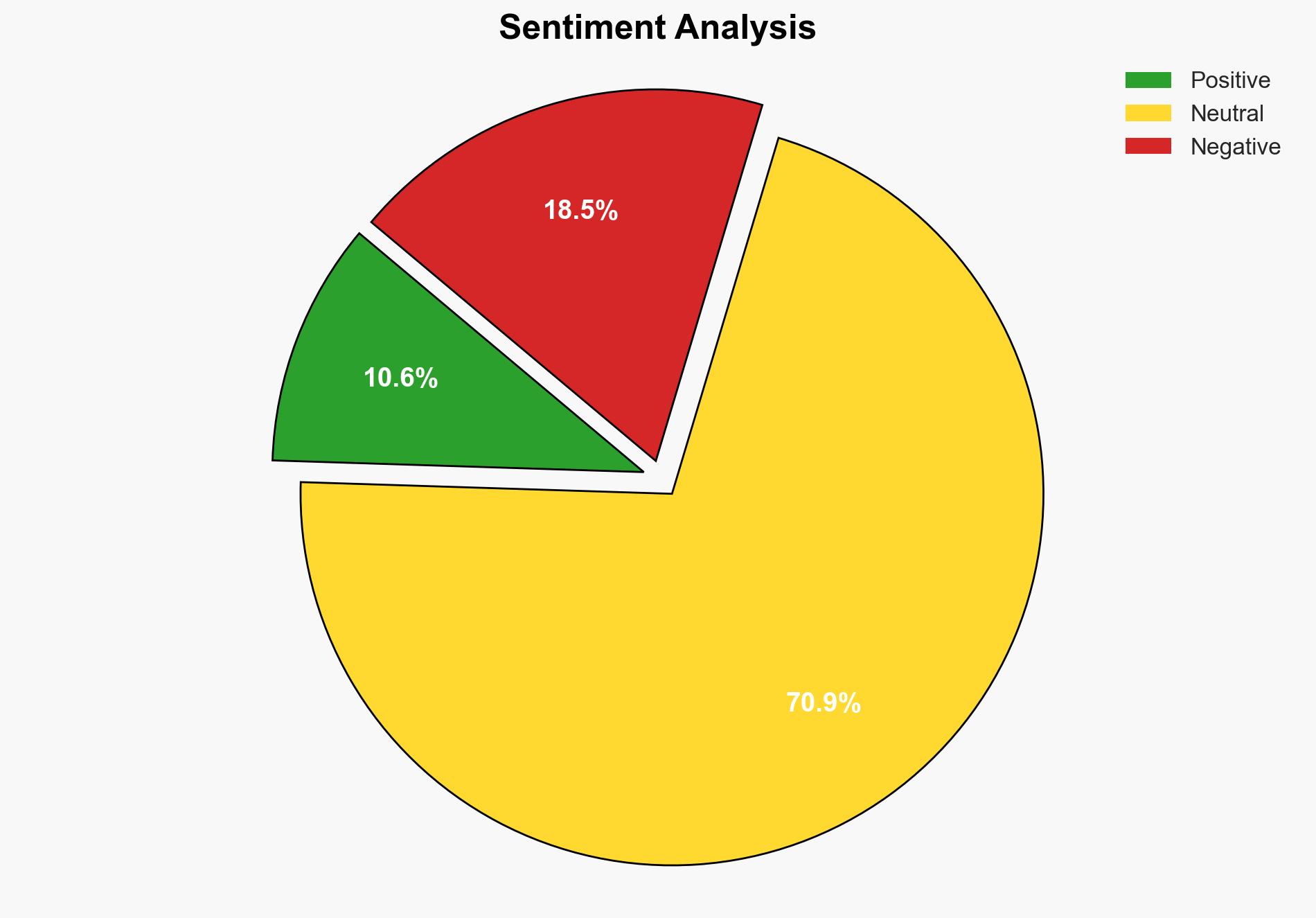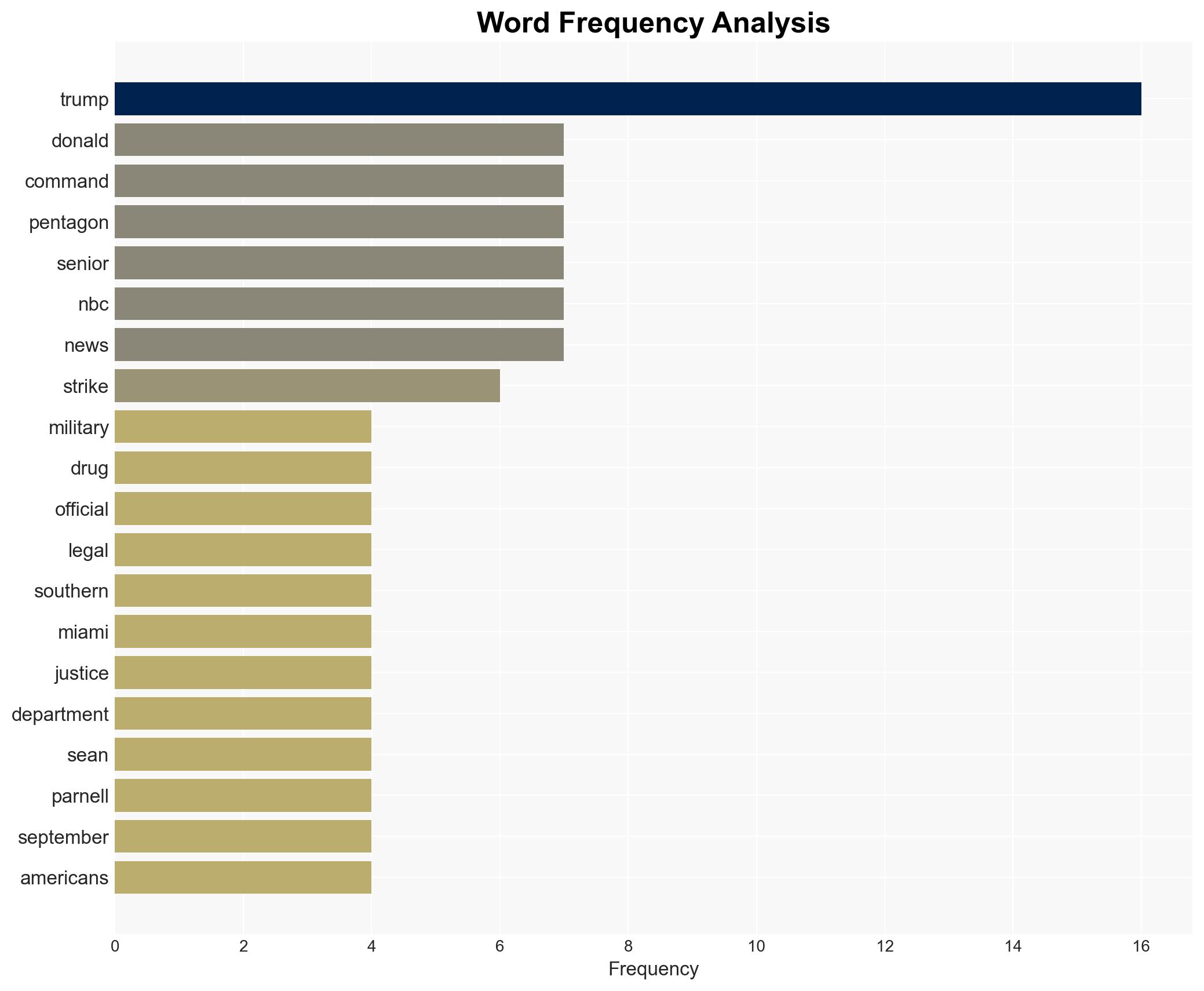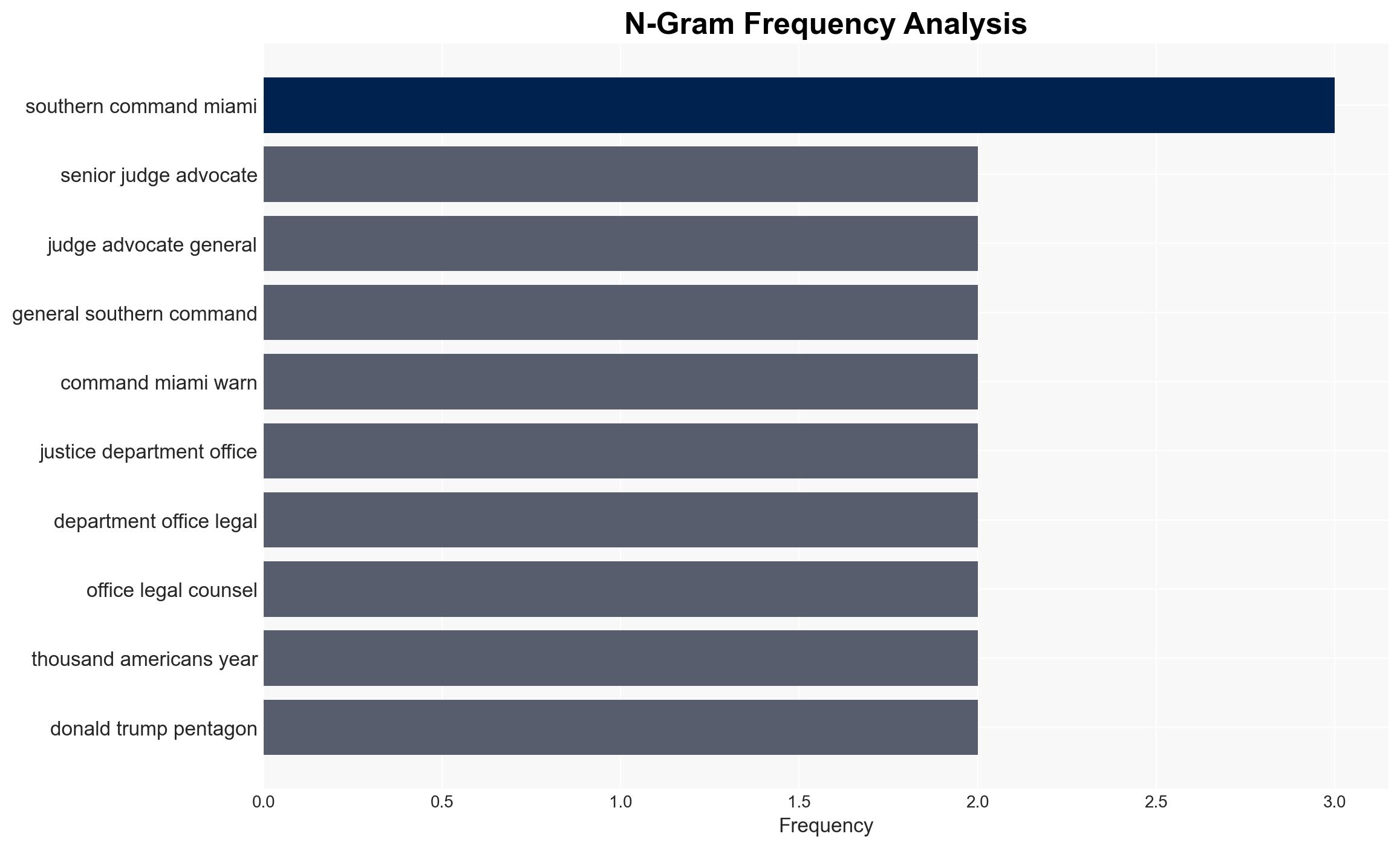Trump Ignored Top Military Lawyer on Illegal Boat Strikes – The New Republic
Published on: 2025-11-20
AI-powered OSINT brief from verified open sources. Automated NLP signal extraction with human verification. See our Methodology and Why WorldWideWatchers.
Intelligence Report:
1. BLUF (Bottom Line Up Front)
The strategic judgment is that the decision by former President Donald Trump to proceed with military strikes on alleged drug trafficking vessels, despite legal objections, was primarily driven by a policy stance prioritizing aggressive counter-narcotics operations over adherence to international legal norms. This hypothesis is supported by the pattern of decision-making observed during Trump’s administration. Confidence level: Moderate. Recommended action: Conduct a thorough review of the legal frameworks guiding military operations to prevent potential future breaches and ensure alignment with international law.
2. Competing Hypotheses
Hypothesis 1: The decision to conduct boat strikes was a calculated policy move to demonstrate a strong stance against narcoterrorism, prioritizing immediate tactical gains over legal concerns.
Hypothesis 2: The decision was a result of inadequate legal counsel integration into the decision-making process, leading to oversight and misjudgment regarding the legality of the strikes.
Hypothesis 1 is more likely given the consistent pattern of prioritizing aggressive military tactics over diplomatic and legal considerations during Trump’s tenure. Hypothesis 2 is less likely but plausible, considering potential communication breakdowns within the administration.
3. Key Assumptions and Red Flags
Assumptions: It is assumed that the legal advice provided was comprehensive and accurately reflected international law. It is also assumed that the decision-making process was influenced by Trump’s personal policy preferences.
Red Flags: The dismissal of legal concerns by senior officials suggests potential bias towards military solutions. The lack of transparency in the decision-making process raises questions about internal checks and balances.
4. Implications and Strategic Risks
The decision to ignore legal counsel and proceed with strikes could set a precedent for future administrations, potentially eroding adherence to international law. This could lead to increased tensions with international partners and undermine U.S. credibility. There is also a risk of retaliatory actions by affected nations or groups, escalating into broader conflicts.
5. Recommendations and Outlook
- Conduct a comprehensive review of the decision-making process to ensure legal counsel is effectively integrated into military operations.
- Engage with international partners to reaffirm commitments to international law and rebuild trust.
- Best-case scenario: Strengthened legal frameworks and improved international relations.
- Worst-case scenario: Heightened international tensions and potential retaliatory actions.
- Most-likely scenario: Increased scrutiny of U.S. military operations and diplomatic efforts to mitigate fallout.
6. Key Individuals and Entities
Donald Trump, Marine Col. Paul Meagher, Sean Parnell.
7. Thematic Tags
Regional Focus, Regional Focus: Caribbean, United States
Structured Analytic Techniques Applied
- Causal Layered Analysis (CLA): Analyze events across surface happenings, systems, worldviews, and myths.
- Cross-Impact Simulation: Model ripple effects across neighboring states, conflicts, or economic dependencies.
- Scenario Generation: Explore divergent futures under varying assumptions to identify plausible paths.
Explore more:
Regional Focus Briefs ·
Daily Summary ·
Support us





